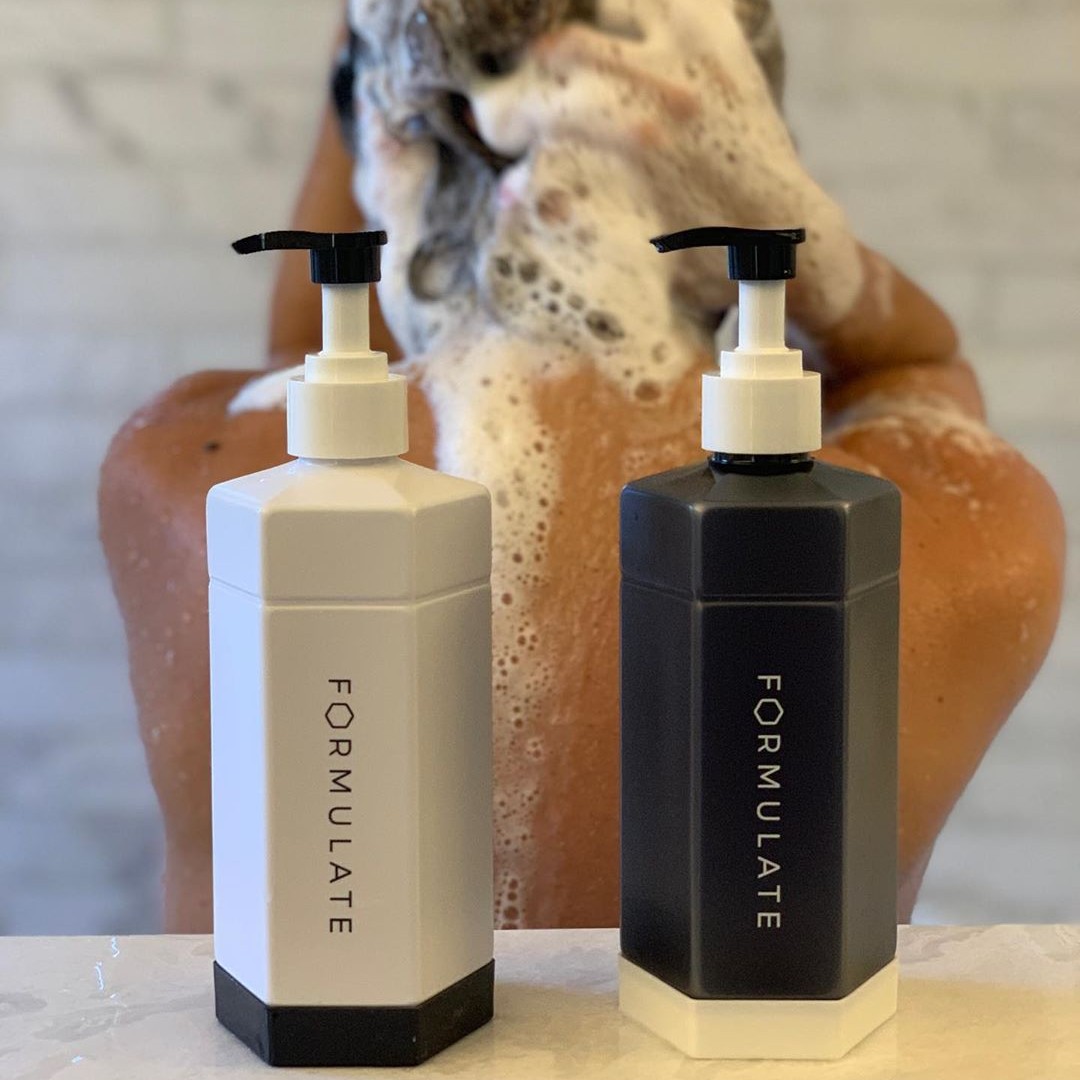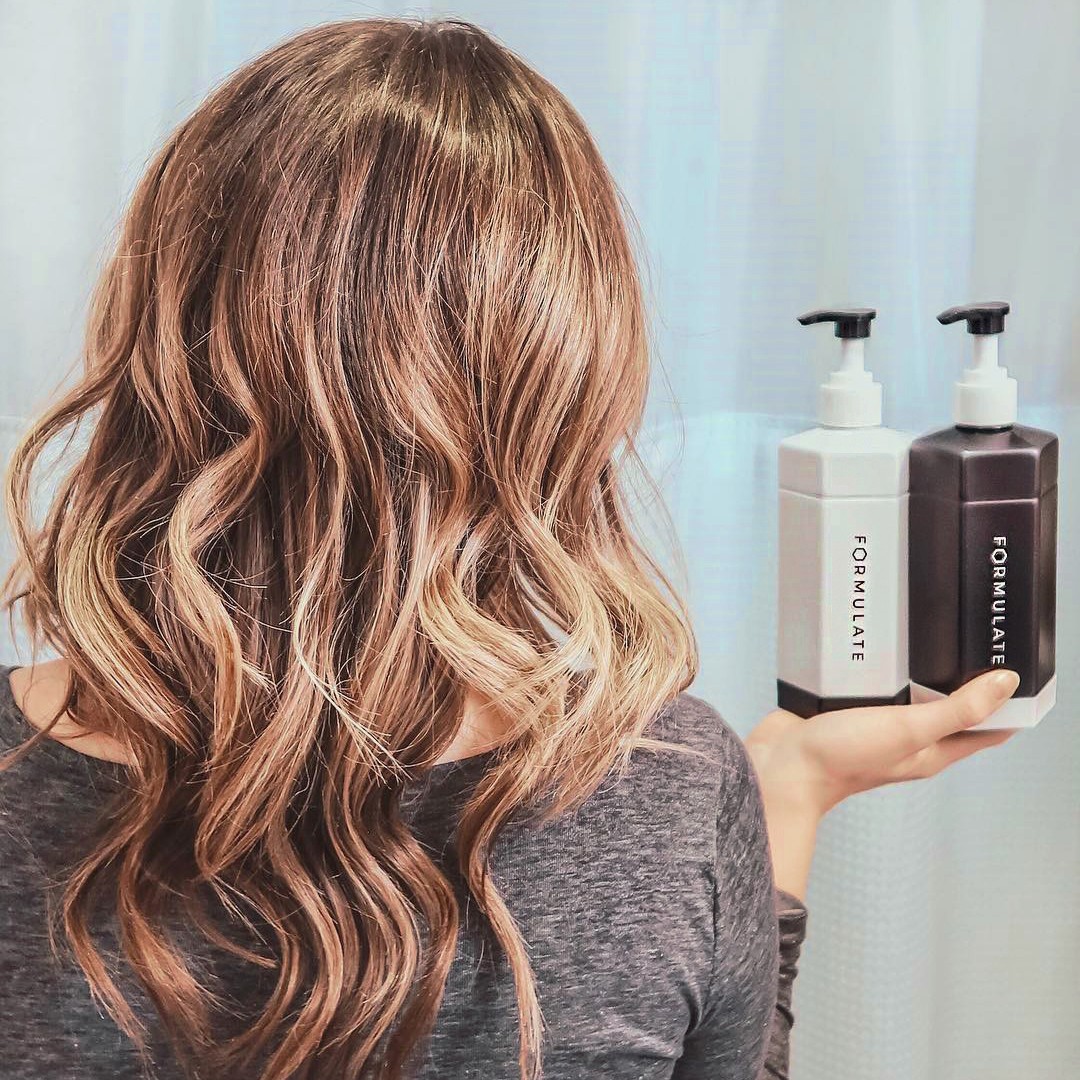Why do cosmetic chemists formulate hair products with silicones?
Cosmetic chemists are scientific professionals whose primary concern is to create safe, effective products that provide the desired results of their specific users. Every ingredient in the beauty products you use was chosen by a cosmetic chemist for a very specific purpose. Due to formulation constraints, there is not enough room in any given formula to include extra ingredients that are not necessary. This is true for not only the products that we formulate, but also for every cosmetic product on the market today.
Cosmetic chemists who specialize in hair products use silicones primarily to seal the hair shaft and protect from breakage-inducing microfractures. Silicones shield the hair from damaging everyday events, such as:
- Undergoing chemical treatments, including relaxers and perming treatments.
- Brushing while damp or wet.
- Brushing with great force.
- Exposure to pollutants in the air.
- Exposure to chlorinated water.
- Being styled with heat tools, like curling irons or straighteners.
- Exposure to products with a PH over 9.0.
- Undergoing harsh styling techniques, such as tight ponytails or braids.
There are so many risk factors to hair that damage is inevitable. To illustrate why this is: think about a top that you've frequently worn during the past few years. Perhaps it is a blouse, a sweater, or a baseball shirt-- it can be anything that is made of an organic, somewhat fragile material, like cotton.
Now, imagine if you wore that top every single day since you first purchased it. You wore it while sleeping, swimming, and bathing. You exercised, sweat, and did chores in it. You wore it on the brightest, hottest days of summer and the snowiest, coldest days of winter. You bleached and dyed it. You stretched it out, poked it with pins, and tied it in knots. Most importantly, you never, ever took it off.

Now, imagine what that top looks like after you've done this every day for years. Regardless of how sturdy it was when you first purchased it, by now it's surely tattered, stretched out, faded, and full of holes. It might not even look like a piece of clothing at all.
Human hair is similar to this top. Depending on your genetics, hair might start out strong, but just like any other natural fiber it can only withstand so much stress until it breaks. Considering the environments and events we put it up against, it is amazing that hair is as resilient as it is.
Now, imagine if you wore a thin jacket on top of the original top. You wore this jacket everywhere you went. You never took it off, just like the top underneath it. But unlike the top, you were able to replace the jacket once every few days with a new one.
As you might expect, your jacket didn't protect your top from everything that it was exposed to -- it is a jacket, after all, not a suit of armor -- but it prevented a significant amount of damage from occurring.
Like the jacket in this story, a conditioner formulated with silicones adds protection to your hair. While some of the damage to your hair is inevitable, much is stopped by the silicone barrier. And as the barrier is worn down by time and damage, you have the ability to remove and reapply it by shampooing and conditioning your hair.
For consumers whose primary goal is to grow out their hair, this protection is especially essential - the best way to aid natural hair growth is to prevent the hair you already have from breaking off.
...But I heard that silicones are bad for your hair. What's up with that?
There is a lot of misinformation on silicones floating around online that lacks empirical, peer-reviewed, scientific evidence. One of the most common rumors is that silicone weighs down hair, causing it to appear dull, dirty and dried out. As a community of scientific professionals and leaders in the Chemist-to-Consumer movement, it is important to us that you know that there is no lab-produced data to substantiate these claims.
One thing that many people are concerned about is the idea that silicones will seal in pollutants in the hair. Much of this worry is caused by a misunderstanding of how shampoos that contain silicones are formulated. To better explain this process, let us take a closer look at how silicones function, and the other ingredients that they are formulated with, work together in a conditioner.
Conditioners contain a small amount of cleansing agents, called surfactants. Surfactants are the main cleansing agents in shampoos. They can be natural or naturally derived, and are responsible for much of the bubbling and sudsing that shampoos produce when combined with water.

Besides surfactants, conditioners also include small amounts of active ingredients. These active ingredients can provide a wide range of benefits to hair. Some help with curl definition, others help with shine, others help with dandruff, and still others help strengthen hair from the inside. The specific active ingredients included in your product depend on what your product was formulated to do.
Silicones, surfactants, and active ingredients all work together. The surfactants in conditioners remove surface impurities, like dirt or pollutants from the air, from the hair strand. At the same time, the active ingredients cling to and enter the hair strand. The silicones apply a temporary protective covering on top of the active ingredients, so that they do not fall out of the hair strand and down the drain. The combination of these three ingredients help silicones seal in only the important ingredients that promote hair health, while dirt and dust wash down the drain.
Silicones are also inert, which means they do not permanently bond with the hair or irritate the scalp. The temporary bond created by the silicone is removed whenever hair is washed, as silicone is soluble when exposed to a surfactant. The end result is (you guessed it) no buildup. The hair is the same as before the silicone was applied, only now it has been nourished with the active ingredients included in the conditioner.
All this being said, it is still up to you what ingredients you want included in your hair products. While, as scientific professionals, we certainly recommend the inclusion of silicones within your formulas, we built Formulate to empower consumers to make their own choices on what they want included in their hair products. Your hair is your hair, and it's up to you with what you want to do with it.
Wanna learn even more about haircare? Here's what you should check out next:
What Does Chlorine Do To Your Hair?
Spoiler: It's not good for it.
Does Hair Color Expire?
Pssst -- if you think your hair color has expired, you should go ahead and ditch it.
Hair Botox 101
The heck is "blotox" anyway?
How To Sleep With Curly Hair
Sleep easy with your curls secured.
Ouidad Cut 101
Is this the right curl-cut for you?

